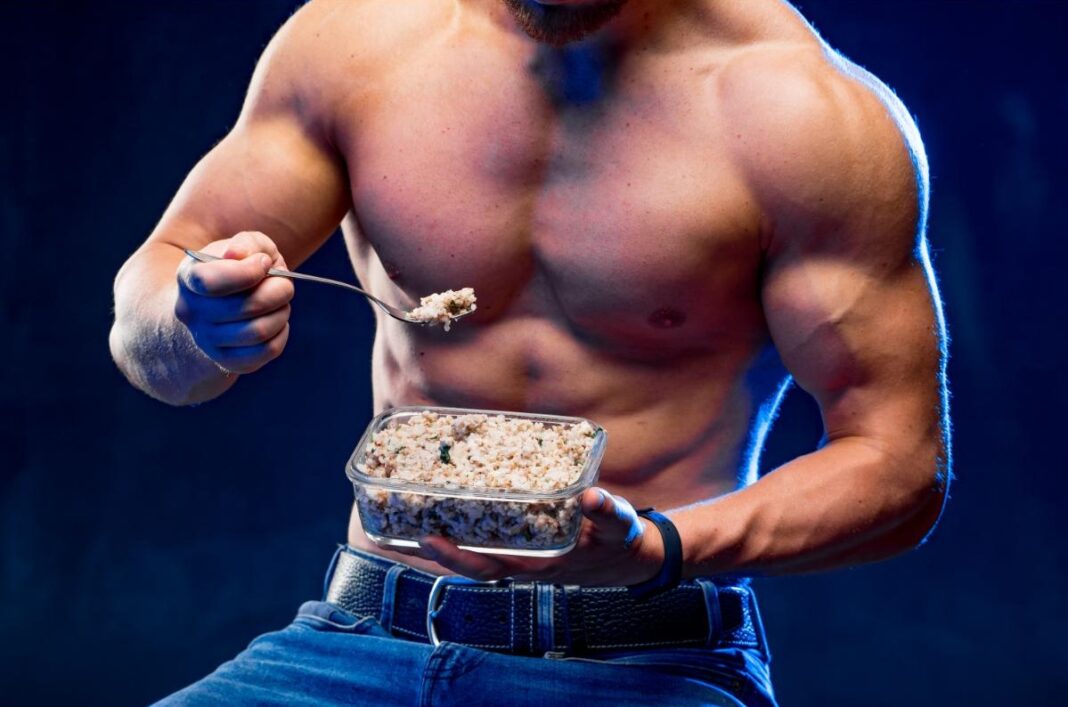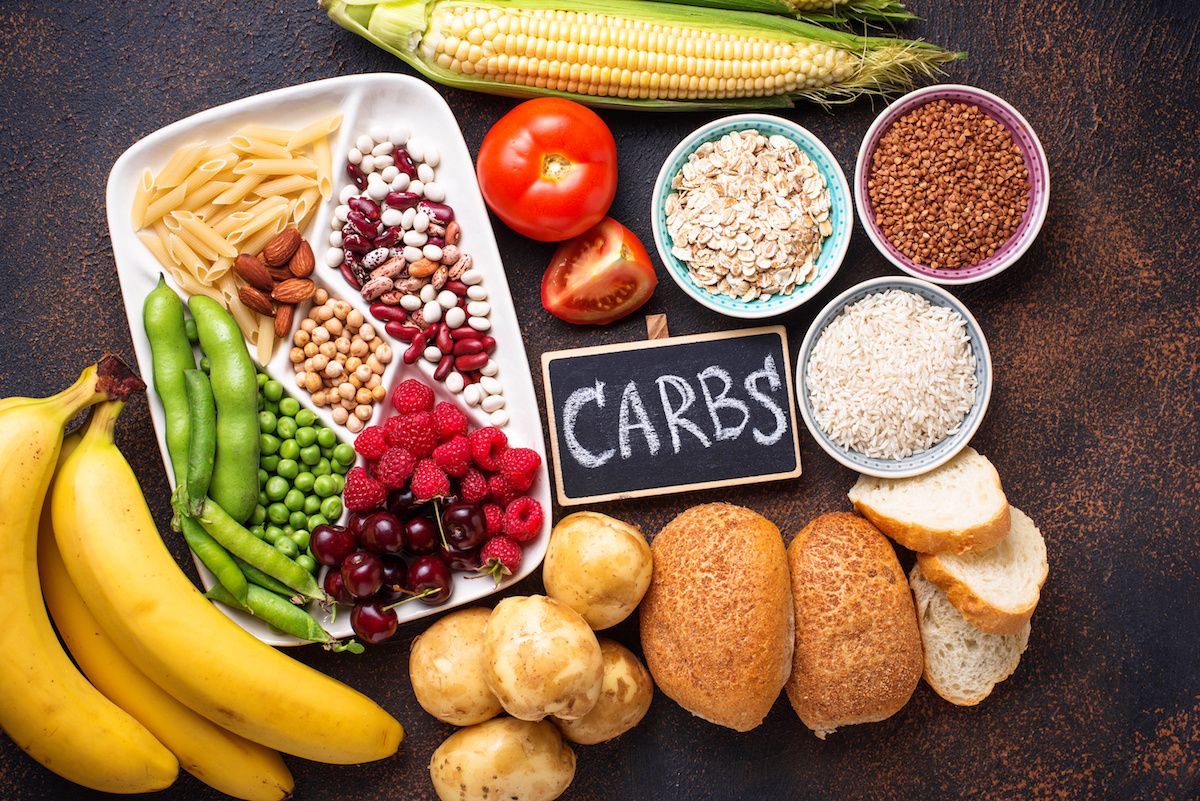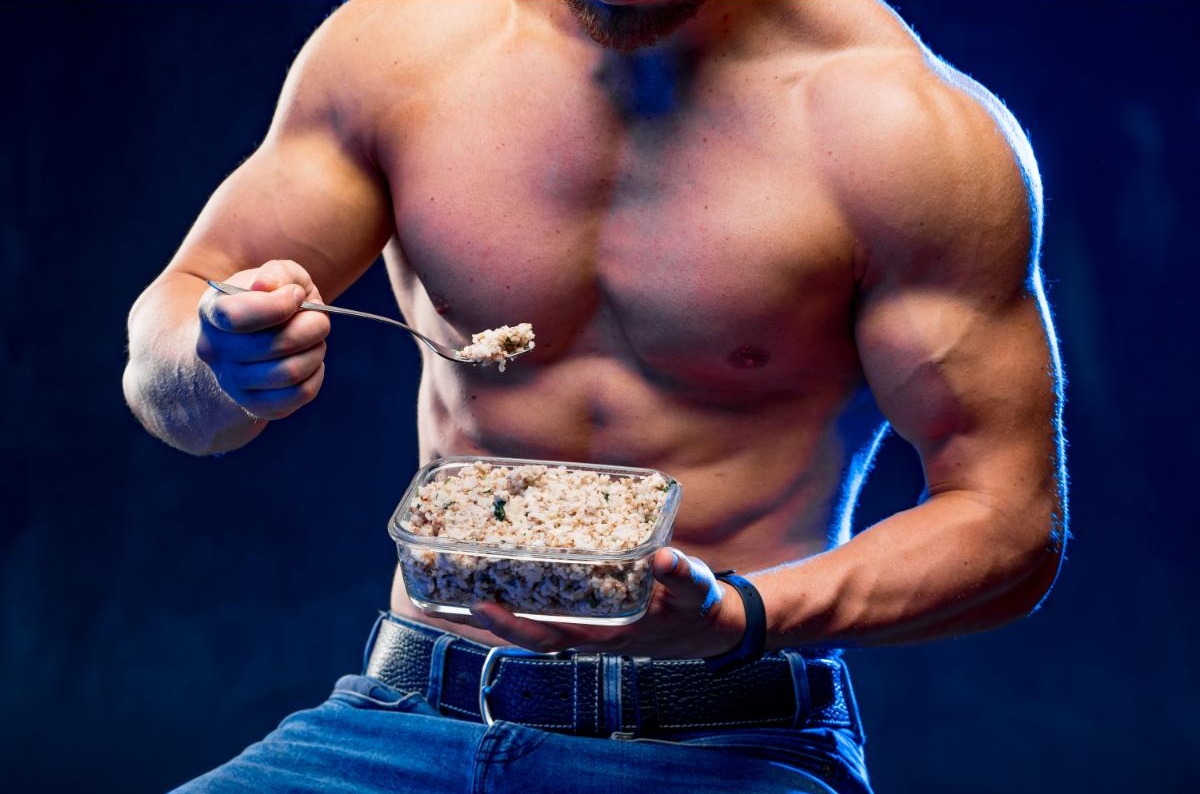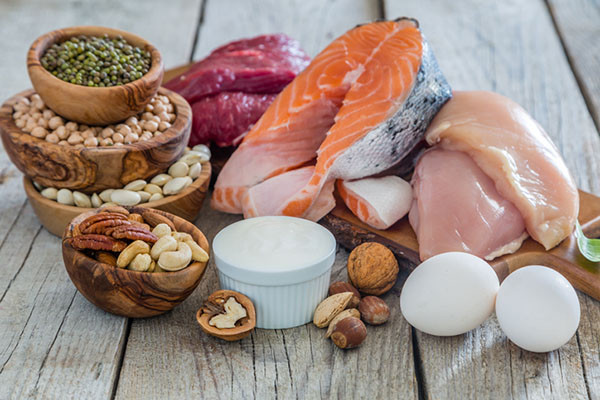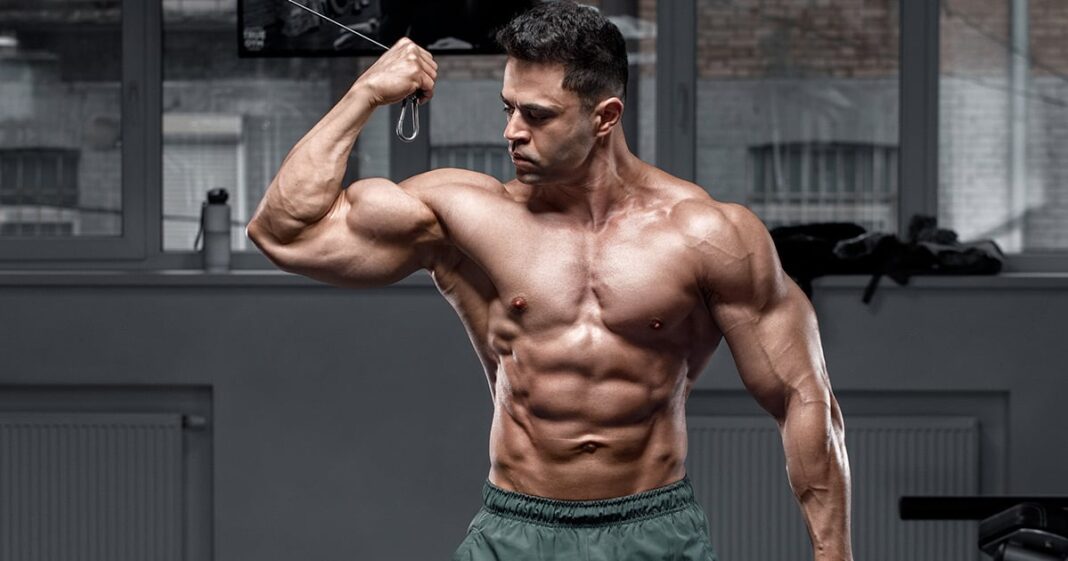The Role of Carbs in Building Muscle: Fueling Strength & Recovery
Carbs often get a bad reputation in fitness circles — unfairly.
While protein builds muscle tissue, carbohydrates power the process. They fuel your workouts, speed up recovery, and help your body use protein more efficiently.
If you’re serious about muscle growth, carbs aren’t optional — they’re a performance multiplier.
In this article, you’ll learn:
- How carbs directly support strength and muscle gains
- The ideal amount of carbs for your goal (bulk, cut, or recomp)
- How to time your carbs for energy and recovery
- The best carb sources for muscle-building diets
⚙️ Why Carbs Matter for Muscle Growth
Carbohydrates are your body’s primary energy source. When you train, your muscles rely on glycogen — stored carbs in muscle tissue — for explosive strength and endurance.
When glycogen runs low, fatigue sets in faster, form breaks down, and performance suffers.
In other words: low carbs = low intensity = less muscle stimulus.
But there’s more.
Carbs also play a hormonal role — particularly in regulating insulin, a key anabolic (muscle-building) hormone that helps shuttle nutrients into muscle cells.
In short:
Carbs fuel your workouts, enhance recovery, and create an optimal environment for muscle growth.
🧬 The Science of Carbs and Glycogen
Every rep, sprint, and heavy set draws energy from ATP (adenosine triphosphate).
Carbs are the fastest, most efficient way for your body to replenish ATP — especially during anaerobic training like weightlifting.
After intense training, your glycogen stores can drop by 40–60%.
Refilling them helps:
- Restore training performance
- Accelerate muscle repair
- Reduce cortisol (stress hormone) levels
- Improve next-day readiness
This is why low-carb bodybuilding often backfires — energy tanks, lifts stall, and recovery slows.
📊 How Many Carbs Do You Need to Build Muscle?
The ideal carb intake depends on:
- Training volume and intensity
- Body composition goals
- Metabolism and recovery rate
🔹 General Guidelines for Lifters
| Goal | Carbs per kg of bodyweight | Carbs per lb |
| Muscle Gain (Bulking) | 4–7 g/kg | 1.8–3.2 g/lb |
| Maintenance | 3–5 g/kg | 1.4–2.3 g/lb |
| Fat Loss (Cutting) | 2–3 g/kg | 0.9–1.4 g/lb |
👉 Example:
An 80 kg (176 lb) lifter in a lean bulk should aim for:
80 × 5 = 400g carbs/day
That’s about 1,600 calories from carbs, providing the energy needed to train hard and recover stronger.
⏱️ Carb Timing for Maximum Performance & Recovery
Carb timing isn’t as rigid as old-school bodybuilding made it seem, but strategic distribution does improve results — especially around your workouts.
🔹 Pre-Workout (1–3 hours before)
Fuel up for intensity.
Carbs before training top off glycogen stores and stabilize blood sugar.
Best sources:
- Oats
- Rice cakes
- Bananas
- Sweet potatoes
- Whole grain toast
Aim for 30–60g of carbs with a bit of protein.
🔹 Intra-Workout (Optional for Long Sessions)
For long or high-volume sessions (60+ minutes), fast carbs help sustain performance.
Examples:
- Dextrose or cyclic dextrin
- Sports drinks
- Dried fruit
10–20g mid-session can help advanced lifters maintain output.
🔹 Post-Workout (0–2 hours after training)
This is when your muscles are primed for glycogen replenishment and nutrient uptake.
Combining carbs with protein boosts muscle recovery and protein synthesis.
Ideal combo:
- 30–60g fast-digesting carbs + 30–40g protein
Examples:
- Whey shake + banana
- White rice + chicken
- Cream of rice + whey
🥦 Best Carb Sources for Muscle Growth
Not all carbs digest or perform the same.
For bodybuilders, the goal is steady energy, good digestion, and micronutrient support.
🔹 Complex (Slow-Digesting) Carbs
Provide stable energy, reduce cravings, and improve fullness.
- Oats
- Brown rice
- Sweet potatoes
- Quinoa
- Lentils
- Whole wheat pasta
🔹 Simple (Fast-Digesting) Carbs
Best used around workouts for quick glycogen replenishment.
- White rice
- Honey
- Fruit (banana, pineapple, berries)
- Rice cakes
- Low-fiber cereals
🔹 Fibrous Carbs
Essential for digestion and overall health.
- Broccoli
- Spinach
- Green beans
- Asparagus
- Kale
🧠 Carbs, Insulin, and the Anabolic Environment
Carbs trigger insulin release, which helps shuttle glucose and amino acids into muscle cells.
This hormone doesn’t just store energy — it’s anti-catabolic, meaning it prevents muscle breakdown.
After training, a moderate insulin spike helps:
- Drive nutrients into muscle tissue
- Reduce muscle protein breakdown
- Promote recovery and glycogen storage
You don’t need “insulin spikes” all day — just around training, when your muscles are most receptive.
⚖️ Balancing Carbs with Protein and Fats
A great physique isn’t built on one macronutrient alone.
Think of carbs as performance fuel, protein as building blocks, and fats as hormonal support.
For optimal results:
- Protein: 25–30% of total calories
- Carbs: 45–55%
- Fats: 20–25%
Example for a 2,800-calorie diet:
- Protein: 180g (720 cal)
- Carbs: 350g (1,400 cal)
- Fats: 85g (765 cal)
🔁 Carbs and Body Composition
- During Bulking:
Carbs are your best ally. They:
- Keep workouts explosive
- Support recovery
- Help you stay in a consistent calorie surplus
Stay mostly with complex carbs, and limit processed sugars.
- During Cutting:
Don’t go zero-carb. Reduce moderately while keeping carbs around training for performance and recovery.
Strategic refeed days help replenish glycogen and reset metabolism.
🧬 Advanced Tip: Carb Cycling
Carb cycling involves alternating between high-, medium-, and low-carb days based on training intensity.
Example week:
| Day | Focus | Carb Intake |
| Mon | Heavy legs | High |
| Tue | Rest | Low |
| Wed | Push | Medium |
| Thu | Pull | Medium |
| Fri | Legs | High |
| Sat | Rest | Low |
| Sun | Full-body | Medium |
This strategy works well for intermediate and advanced lifters managing energy and leanness.
⚠️ Common Carb Myths (Debunked)
❌ “Carbs make you fat.”
Only a calorie surplus causes fat gain — not carbs themselves.
❌ “You can’t build muscle on low carbs.”
Technically possible, but harder. You’ll fatigue faster, and recovery suffers.
❌ “Simple carbs are bad.”
Context matters. Around workouts, they can be your best ally.
🥗 Example Meal Plan (for 400g carbs/day)
| Meal | Food Example | Approx. Carbs |
| Breakfast | Oats + banana + whey | 80g |
| Lunch | Chicken + rice + veggies | 100g |
| Pre-Workout | Rice cakes + peanut butter | 50g |
| Post-Workout | Whey + cream of rice | 60g |
| Dinner | Salmon + potatoes | 80g |
| Snack | Greek yogurt + berries | 30g |
| Total | ~400g carbs |
✅ Key Takeaways
- Carbs are essential for energy, strength, and muscle recovery.
- Consume 3–7g/kg/day depending on your goal.
- Time carbs around workouts for best results.
- Choose mostly complex carbs, but use fast carbs post-workout.
- Insulin helps drive nutrients into muscles — use it strategically, not excessively.
🔗 Related Articles
- The Fundamentals of Muscle-Building Nutrition
- How to Calculate Your Calories for Muscle Growth (TDEE Guide)
- Protein for Muscle Growth: How Much Do You Really Need?
- The Role of Fats in Muscle Growth and Hormone Health
- Building the Perfect Muscle-Building Meal Plan

